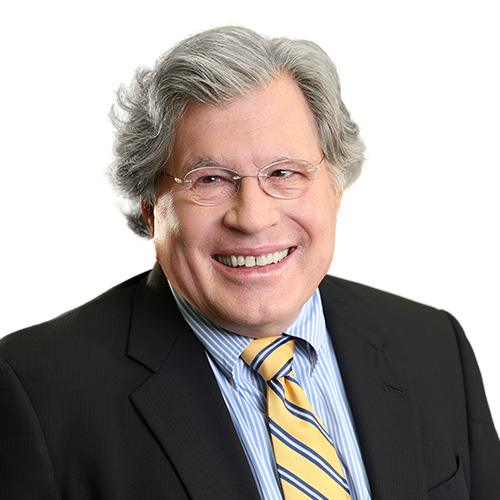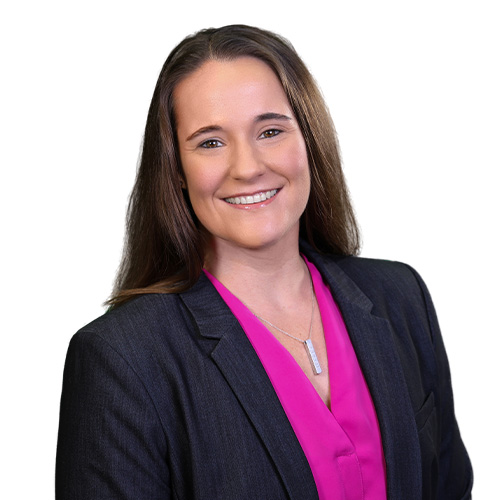On Nov. 19, 2025, the Department of Justice (DOJ) announced the sentencing of a Missouri Man to 10 years in prison for a $174 million health care fraud conspiracy. The settlement provides valuable lessons to DME suppliers. The press release states:
“Acting U.S. Attorney Michael M. Simpson announced that Jamie P. McNamara (“McNamara”), age 50, of Missouri, was sentenced on October 23, 2025, to 10 years in prison for orchestrating a scheme to defraud Medicare by unlawfully billing hundreds of millions of dollars in claims for cancer genetic testing and cardiovascular genetic testing.
 According to court documents, McNamara operated several laboratories in Louisiana and Texas, which obtained doctors’ orders for genetic testing from telemarketers and call centers that used aggressive telemarketing campaigns to induce Medicare beneficiaries to agree to receive genetic testing. Orders for genetic testing were signed by purported telemedicine doctors who were not the beneficiaries’ treating physicians, did not perform consultations with the beneficiaries, and did not follow up with the beneficiaries after the testing was performed. To obtain the orders, McNamara paid illegal kickbacks and bribes, which he disguised through sham contracts. In furtherance of the scheme, he also shifted the billing between his laboratories to evade scrutiny from Medicare and law enforcement and concealed his ownership and control of the laboratories by falsely listing the names of his family members as owners and company representatives on Medicare and other documents. In approximately one and a half years, the laboratories operated by McNamara submitted over $174 million in claims to Medicare for genetic testing and received over $55 million in reimbursements. The government previously seized several luxury vehicles from McNamara and over $7 million in bank accounts.
According to court documents, McNamara operated several laboratories in Louisiana and Texas, which obtained doctors’ orders for genetic testing from telemarketers and call centers that used aggressive telemarketing campaigns to induce Medicare beneficiaries to agree to receive genetic testing. Orders for genetic testing were signed by purported telemedicine doctors who were not the beneficiaries’ treating physicians, did not perform consultations with the beneficiaries, and did not follow up with the beneficiaries after the testing was performed. To obtain the orders, McNamara paid illegal kickbacks and bribes, which he disguised through sham contracts. In furtherance of the scheme, he also shifted the billing between his laboratories to evade scrutiny from Medicare and law enforcement and concealed his ownership and control of the laboratories by falsely listing the names of his family members as owners and company representatives on Medicare and other documents. In approximately one and a half years, the laboratories operated by McNamara submitted over $174 million in claims to Medicare for genetic testing and received over $55 million in reimbursements. The government previously seized several luxury vehicles from McNamara and over $7 million in bank accounts.
While on pretrial release, McNamara violated his bond conditions by, among other things, fleeing from an unrelated arrest and cutting off an ankle monitor. He was subsequently detained.
U.S. District Judge Darrel J. Papillion sentenced McNamara to the maximum sentence available, 10 years in prison, followed by 3 years of supervised release upon his release. McNamara was also ordered to pay over $55 million in restitution, along with a $100 mandatory special assessment fee, and the $7 million seized by the government was ordered forfeited.
 “With this significant sentence, Judge Papillion showed that white collar criminals do not get special treatment,” said Acting U.S. Attorney Michael M. Simpson for the Eastern District of Louisiana. “Medicare fraud targets vulnerable populations, and our office will continue seeking just punishment for business owners and professionals who abuse this crucial trust-based system to steal taxpayer dollars.”
“With this significant sentence, Judge Papillion showed that white collar criminals do not get special treatment,” said Acting U.S. Attorney Michael M. Simpson for the Eastern District of Louisiana. “Medicare fraud targets vulnerable populations, and our office will continue seeking just punishment for business owners and professionals who abuse this crucial trust-based system to steal taxpayer dollars.”
“Our health care system depends on honest billing and legal compliance. This defendant betrayed that trust, exploiting enrollees and draining millions from a system meant to help them,” said Deputy Inspector General for Investigations Christian J. Schrank of the U.S. Department of Health and Human Services, Office of Inspector General (HHS-OIG). “We will continue working with our law enforcement partners to expose fraud and hold violators of the health care laws accountable.”
“The FBI respects the Court’s decision to sentence Mr. McNamara to the maximum allowed by law, considering his complete and total disrespect for the system and the patients he was entrusted to serve,” said Special Agent in Charge Jonathan Tapp of the FBI New Orleans Field Office. “The FBI is committed to working with our partners like the U.S. Department of Health and Human Services Office of Inspector General (HHS-OIG) and the U.S. Attorney’s Office to expose fraudulent schemes like this one that steal from the American people and vital systems like Medicare.”
There are a number of lessons for DME suppliers:
- Making Quick Money/Making a Lot of Money – Whenever a DME supplier is presented with the opportunity to make quick money or to make substantially more money than the supplier has made in the past, there is a high likelihood that the opportunity is “Fool’s Gold” and will eventually blow up in the supplier’s face.
- Be Wary of Marketers/Lead Generation Companies (“LGCs”)/Telehealth Companies – Our experience is that DME suppliers, pharmacies, physicians, and other providers get sucked into trouble by non-health care providers such as marketers, LGCs, and telehealth companies. These non-providers contact providers for one purpose…and one purpose only: they want to reach their hand into the stream of money that flows to providers. The marketers/LGCs/telehealth companies do not have much to lose. For example, they are not required to have degrees, licenses, numbers/permits, certifications, accreditation, etc. You get the idea. The health care providers that jump into bed with marketers/LGCs/telehealth companies have everything to lose. If there is a government investigation or a recoupment action, the primary target will be the health care provider, not the non-provider. Marketers/LGCs/telehealth companies have been the driving force in promoting (i) diabetic testing supplies, (ii) seat lifts, (iii) compounded pain creams, and (iv) back and knee braces. And today, software vendors and other non-providers are driving physicians into the remote physiological monitoring (“RPM”) space. The bottom line is that a DME supplier needs to be wary of any marketer/LGC/telehealth company that approaches the supplier.
- Many Roads Lead to the FCA – Most DME suppliers understand that if they submit a claim for equipment not delivered, or if they submit a claim for Product A but delivered Product B, then such a claim constitutes a “false claim.” But what many suppliers do not know is that if a claim arises out of an arrangement that violates the AKS, Stark, the beneficiary inducement statute, or the telephone solicitation statute, then the claim becomes a “false claim.”
- And This is Where Whistleblowers Come In – If a DME supplier is doing something it should not be doing; someone knows about it. That “someone” is normally an employee or ex-employee. Hopefully, the employee will address the problem with the supplier’s compliance department, and the compliance department will resolve it as the law requires. But the employee may hire an attorney who specializes in bringing whistleblower (or “qui tam” lawsuits) against providers/suppliers. In the lawsuit, the whistleblower becomes a “Relator.” The lawsuit is in the name of the Relator “and in the name of the United States.” The whistleblower suit is based on the FCA. The allegations in the lawsuit are that the DME supplier conducted activities that violate one of the above-mentioned statutes and that the resulting claims are “false claims.” Whistleblower lawsuits are civil, not criminal. However, many criminal cases arise from whistleblower lawsuits.
- Criminal Case – Resolve it Quickly – If a DME supplier finds itself the target of a criminal investigation, it needs to proactively work with the Department of Justice (“DOJ”) to resolve the case as quickly as possible. If the planets align just right, the criminal case will be resolved through a civil settlement. If the supplier is unable to convince the DOJ to reach a civil settlement, the supplier should work with the DOJ to develop a plea that, while unpleasant, the supplier can live with. It is much easier for a DME supplier to reach a plea agreement (that the supplier can live with) before an indictment is handed down. The punishment resulting from an agreed criminal plea will normally be much lighter than the punishment handed down after a jury conviction. The odds of being convicted in a federal health care fraud trial are extremely high. And so only in extraordinary circumstances should the DME supplier proceed to trial.
- Civil Case – Resolve it Quickly – The penalties under the FCA are massive. If a DME supplier goes to trial defending a civil whistleblower lawsuit in which the DOJ has intervened (i.e., taken over the case), and if the supplier loses, the judgment will be way more than the supplier can pay. Unless the supplier is sure it has good facts… and has the law on its side… the supplier needs to work proactively at the outset towards a settlement it can live with.
Jeffrey S. Baird, Esq., is chairman of the Health Care Group at Brown & Fortunato, PC, a law firm based in Texas with a national healthcare practice. He represents pharmacies, infusion companies, HME companies, manufacturers, and other healthcare providers throughout the United States. Baird is Board Certified in Health Law by the Texas Board of Legal Specialization and can be reached at (806) 345-6320 or [email protected].
Jacque K. Steelman, Esq., is a member of the Health Care Group at Brown & Fortunato, PC, a law firm with a national healthcare practice based in Texas. She represents pharmacies, infusion companies, HME companies, manufacturers, and other healthcare providers throughout the United States. Ms. Steelman can be reached at (972) 684-5789 or [email protected].

